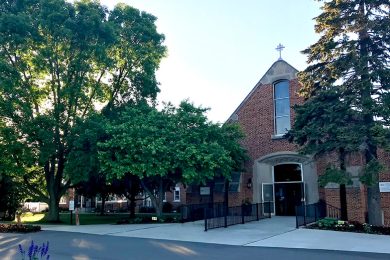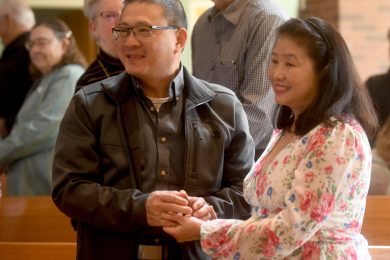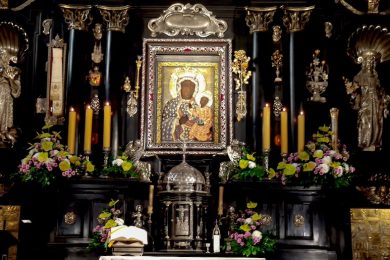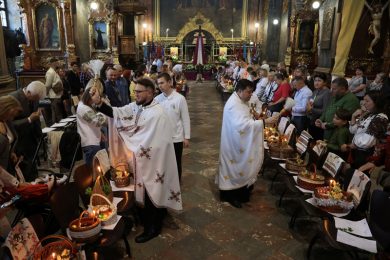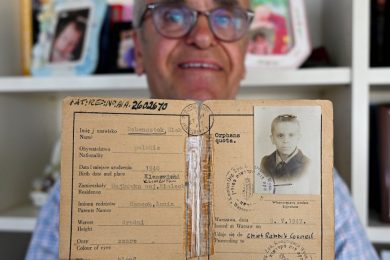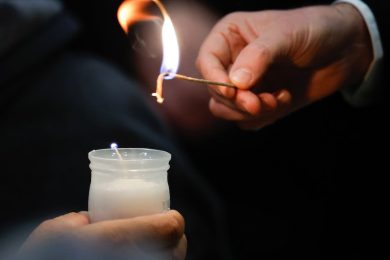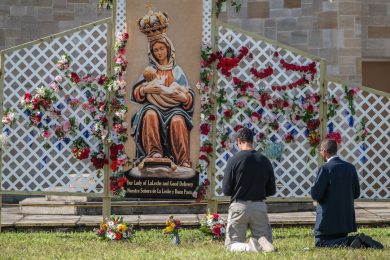Q. I have noticed that more often than not, the Confiteor (“I confess”) is skipped at Mass, and the priest or deacon goes right into the “Lord, have mercy” prayer (Kyrie). I have inquired as to why they do this but cannot get an answer. In the Tridentine Mass, the Confiteor was important enough to be said twice — initially by the priest and then repeated by the altar servers. Is this just to save time or are we forgetting the importance of asking for forgiveness before we ask for mercy? (Atlanta)

A. The writer is evidently unaware of the options offered in the current edition of the Roman Missal, which was introduced in 2011. One of three different formulas may be chosen for the penitential rite, recited by the priest or deacon.
The first uses the Confiteor, with a text very close to the one the writer remembers from years gone by. The second involves a short dialogue of psalm verses, while the third one uses three invocations made to Christ, with the congregation responding by calling out for mercy either in English or in Greek (“Kyrie eleison”).
It is important to note, though — and this, perhaps, answers the writer’s concern — that all three formulas begin with the invitation by the priest for those present to acknowledge their sins in preparation for celebrating the Eucharist and that all three are followed by the priest’s words asking for almighty God to “have mercy on us, forgive us our sins and bring us to everlasting life.”
Q. Recently our bishop spoke out about how cold and unwelcoming some parishes can seem. I recall one instance where I called the priest at our church and asked him to meet with three family members and myself (all of us, regular parishioners) to try to resolve some personal matters that we had.
I was shocked when he told me that family counseling was not a part of his training unless it involved a matter of religion, which it did not. He had no suggestions as to where I could seek help and seemed bothered that I had even brought the matter to his attention.
My husband and I have been so put off by his response that we have not been to church since. Where does the church stand on parish priests counseling their parishioners? (Virginia)
A. I agree with the priest on the matter but not (if your portrayal is accurate) on his manner. Very few parish priests are trained thoroughly in the science or art of counseling as a professional psychiatrist or psychologist might be.
Often in my own 50 years in the priesthood I have declined to take on the role of primary counselor for someone with deep-seated issues, for example acute marital conflict, a long history of family tensions or even suicidal thoughts. I felt that it would have been irresponsible to assume an identity far beyond my skill set.
What I have tried to do, though — and what I think is always a priest’s obligation — is to show sympathy and a desire to help. I regularly refer parishioners to our diocesan counseling center with its trained staff of professionals.
What I sometimes do, too, when I think an inquirer might find it more comfortable, is to meet with a person initially, try to clarify the issues and offer support, and then make the contact myself with our center to arrange an appointment for the one in need.
I do want to comment on your decision to stop going to church because of the way you were treated. I disagree with the priest, as I have mentioned, and I apologize for his evident lack of concern.
But the only one you are hurting now is yourself — by depriving yourself of the strength of the sacraments. Why not just pick a different parish?
– – –
Questions may be sent to Father Kenneth Doyle at askfatherdoyle@gmail.com and 40 Hopewell St., Albany, N.Y. 12208.

